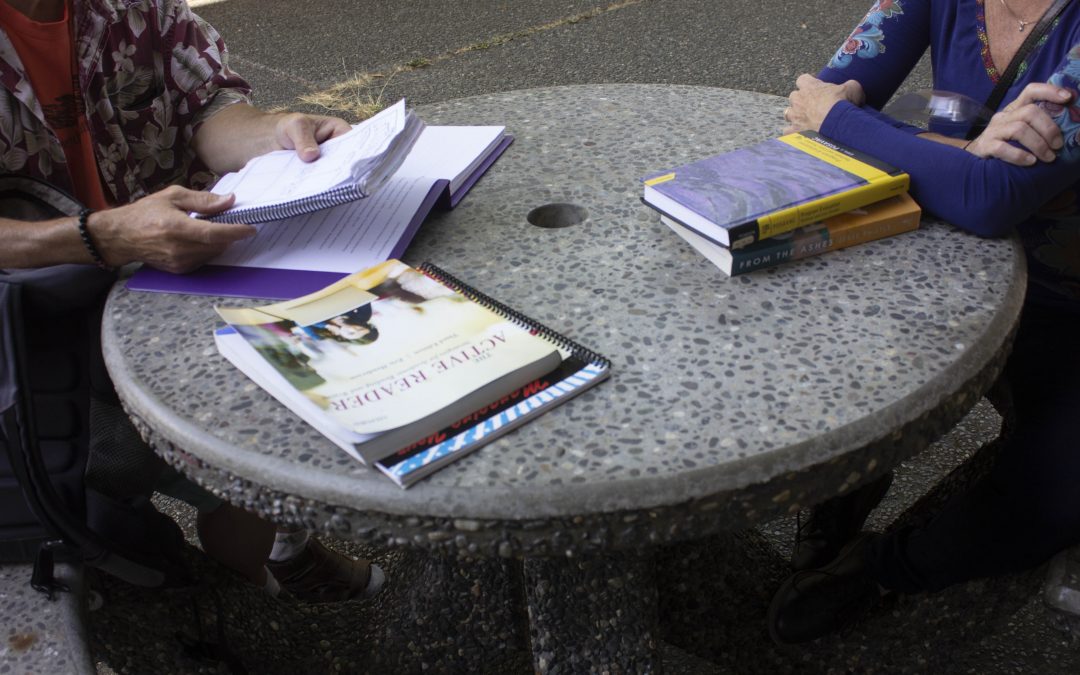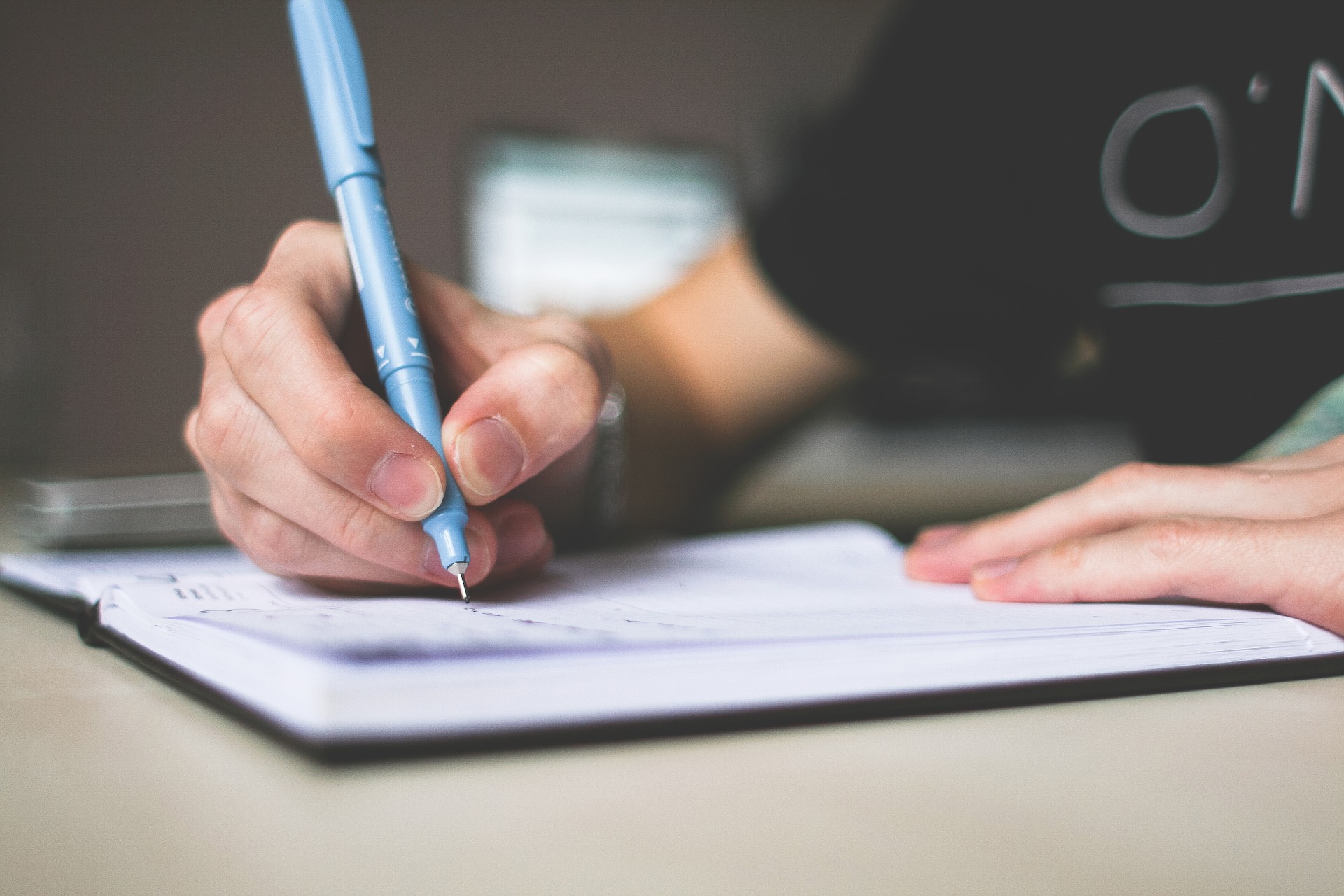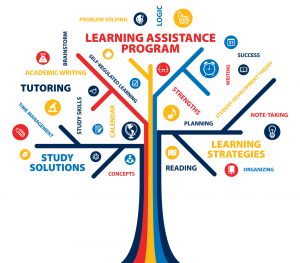School’s Out
With the Spring semester reading break finally upon us, students are enjoying a week blissfully free of scheduled classes. Some people use this time to take a short trip, visit family, or catch up on sleep. Other people may feel pressured to use this time to catch up on schoolwork, study-up for exams, or tackle large projects.
The Learning Assistance Program at UVic reached out to our tutors and learning strategists to hear their thoughts on the best way to spend reading break, as well as how to balance school assignments with a little R&R.
Make a Plan
The absence of scheduled classes means a sudden loss of structure for many students. Stewart, a chemistry tutor at the LAP, suggests pre-planning and setting goals before reading break.
“Students who I’m tutoring will come back after reading break refreshed—but it can become difficult because then after the reading break you have a lot more work to do and that brings on stress. If you create a plan for reading break, that might be the best idea.” He emphasizes that part of your plan can include leisure as well as school work. “You can plan your reading break in a way where you’re able to catch up on sleep, do things you enjoy, spend time with people who you like, but also carve out time for school.”
Michelle, one of the LAP’s learning strategists with a background in education and psychology, suggests something similar. She tells students, “Think, ‘What are some things I really need to get done over reading break?’ Be specific, set up a schedule. If I want to get my essay done, what are the steps I need to follow to make progress?
“After you set up your steps,” she continues, “consider how much you need to get done and what will be the outcome that I need to obtain at the end of each day. You can work 3, 4 hours a day then have the rest of the day for yourself.” Michelle adds that this allows students to set realistic goals and feel accomplished with the work they’ve completed, while also allowing room for some much needed rest.
Grace is another strategist who works with the LAP. Her biggest piece of advice is to spend time early on getting schoolwork taken care of so you can spend the rest of reading break stress-free. “Schedule all your fun stuff at the end of it and use that as your reward to get work done earlier. It takes so much stress off. ” This way, your three-day trip to Tofino doesn’t turn into scenic, beach-side study session.
Balance is Key
If the whole point of reading break is to give students a breather, it’s important not to over-exhaust yourself catching up on school work. Jacob is a math tutor with the LAP; he stresses that, while it’s important to keep up with your studies, you don’t want to overdo it.
“There’s a lot of courses where you could benefit from putting in an hour every day or every couple of days just so you don’t have stress build around doing things for those courses,” he says. “And then also of course, making sure you get lots of rest and relaxation.”
For Tiff, an LAP strategist with a background in writing, it’s all about balance. “If you’re travelling somewhere, often you can bring your work with you and divide your time between catching up with your family and preparing for an exam or catching up on readings,” she says. “It doesn’t have to be a zero sum game.”
Stewart agrees, referring to regular, scheduled weeks throughout the semester as being broken down evenly into a pie chart of school-work-life balance. “A lot of your time is taken up by virtue of the fact that you need to sit in a lecture class for x hours,” he says. “Now, your pie chart can shift for that week because you don’t need to be in class. But that doesn’t necessarily mean you should shift the chart to doing only what you want—you can shift it more towards that, but also leave time for schoolwork.”
Find Time for You
Tutors also emphasized just how important it is to step away from schoolwork and allow yourself some time to recoup during reading break. “My biggest advice would be that it’s really important to get some rest and relaxation,” says Jacob. “I spent a lot of my reading break going to visit home.” He talks about how once you find that balance between study and rest, it’s okay not to prioritize school over the break.
Tiff echoed these sentiments. “If you have the opportunity to connect with family, to travel, to enjoy yourself—take it.” She also stresses just how important rest is, both during reading break and throughout the year. “We’re taught as a culture that rest must be earned, but the truth is that rest is part of the recipe and not just a reward for a job well done. Sometimes we mistake our guilt about resting as passion, and grit, and fitness. But the reality is when we deprive ourselves of our own basic needs, we burn out. It’s important to get to know what rest looks and feels like for you—how your body arrives at a state of rest, what conditions you need in order to recharge, recognizing when you need it and making it a priority.”
For all students, it is important to take some personal time to recharge over the reading break, while at the same time not losing the momentum you’ve gained throughout the semester. The LAP wishes you a happy reading break and hopes you come back well-rested and ready to finish off the term with flying colours!





Thankfulness to my father who told me concerning this webpage, this webpage is actually amazing.
I loved as much as you’ll receive carried out right here. The sketch is attractive, your authored subject matter stylish. nonetheless, you command get bought an nervousness over that you wish be delivering the following. unwell unquestionably come further formerly again since exactly the same nearly very often inside case you shield this increase.
What’s up, always i used to check blog posts here in the early hours in the daylight, since
i like to gain knowledge of more and more.
I think this is one of the most significant information for me.
And i am glad reading your article. But want to remark on few
general things, The site style is ideal, the articles is really
great : D. Good job, cheers
Thanks for finally talking about > Reading Week: A Break from Study or a Break
for Study? | LAP < Loved it!